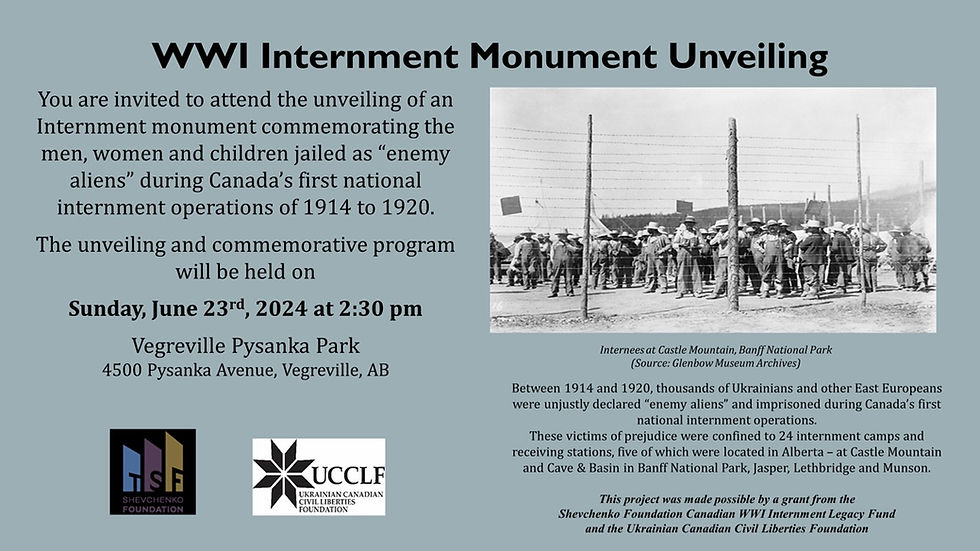UCCLA congratulates federal government on redress negotiations progress
- May 8, 2008
- 2 min read
For immediate release (May 8, 2008) Toronto; Ottawa.
On Friday, May 9, designated representatives of the Ukrainian community will meet with the Hon. Jason Kenney, Canada's Secretary of State for Multiculturalism and Canadian Identity, to sign a funding agreement, a vital first step in securing an honourable settlement of claims arising from Canada's first national internment operations of 1914 to 1920.
A party to the negotiations and the first group to take the lead on the issue more than 20 years ago, the UCCLA is pleased to announce that significant progress has been made on a "Recognition, Restitution and Reconciliation Accord" between the federal government and Canada's organized Ukrainian community, thanks in part to the office of Mr. Kenney.
As a sign of that progress, a technical document, which will be used to account for about $10 million in future discussions, will be signed Friday by Andrew Hladyshevsky of the Taras Shevchenko Foundation and Mr. Kenney in Toronto. "This is, finally, a tangible, positive accomplishment, one that we hope will bring us a step nearer to closing a dark chapter in Canada's wartime history," said Dr. Lubomyr Luciuk, President of the UCCLA.
"While we have, over the last 12 months, lost both Mary Manko and
Mary Hancharuk the last two known survivors of the interment
operations, may they both rest in peace we nevertheless hope that thousands of their descendants and all Canadians who have immigrated from other lands can bear witness to a reconciliation."
--------------- 30 -----------------
Event: Signing of a Funding Agreement between the
Taras Shevchenko Foundation and the Government of Canada for $10 million.
Date: May 9, 2008, at 11 a.m.
Location: Stanley Barracks, Canadian
National Exhibition (CNE) grounds,
Toronto, Ontario
A major event will follow June 20 in Ottawa with the Prime Minister of Canada.
About the internment operations
More than 80,000 Ukrainians were branded "enemy aliens" during Canada's first national internment operations of 1914 to 1920. In addition, almost 5,000 Ukrainians, including men, women and children, were interned as forced labourers in 24 Canadian concentration camps during and after the First World War. More than 8,000 people were interned in total.
People were interned not because of anything they had done, but only because of where they had come from, who they were. There was no evidence then, nor has any been found since, of divided loyalties on the part of the victims of these internment measures.



Comments